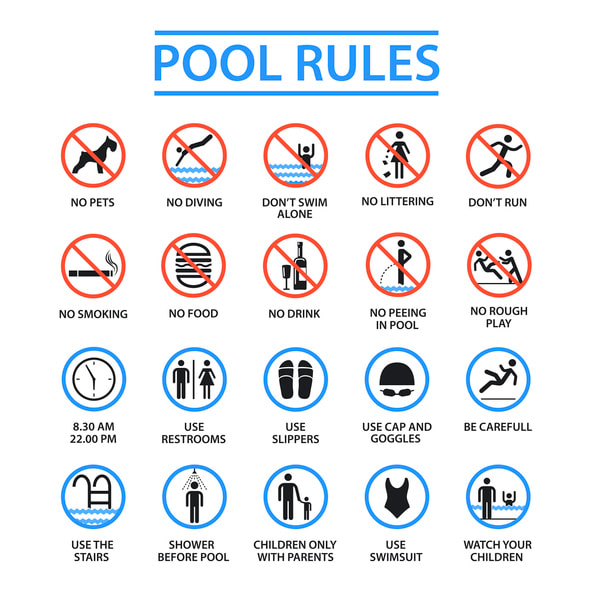Healthy Swimming: Tips for Operating Your Commercial Pool

As the owner of a public pool, your primary goal should be to keep bathers safe. Recreational water illnesses (RWIs) that cause diarrhea, rashes, and respiratory problems are a serious concern. Fortunately, you can promote the health of your pool visitors with a few simple tips.
Lead and Educate Your Staff
- Take a pool operator training course that meets state or local approval. Then, make sure you always have trained operation staff available, especially on the weekends when visitor rates increase.
- Integrate the Steps of Healthy Swimming from the Centers for Disease Control and Prevention (CDC) into staff training.
- Develop policies for reporting and excusing employees who are ill with RWIs.
Maintain Water Quality
- Check the disinfectant and pH levels of your pool at least twice a day—hourly when in heavy use. Keep chlorine levels between one and three parts per million at all times, and maintain the pH level of the water to stay between 7.2 and 7.8.
- Drain and replace portions of the pool water weekly to monthly, depending on water quality and pool usage.
- Shock the pool daily to weekly, depending on water quality and how frequently you replace the water.
- Scrub pool surfaces as needed to remove algae and slime.
- Maintain accurate records of your chlorine and pH measurements, along with all other pool maintenance activities.
- Follow the CDC’s disinfection guidelines for in-pool fecal incidents and bodily fluid spills on pool surfaces.
Maintain Pool Equipment
- Service your pool filter and recirculation system as recommended by the manufacturer.
- Follow a preventative maintenance schedule to replace feed pump tubing, sensor probes, injectors, and other equipment or parts before they fail.
Sustain Hygienic Facilities
- Keep the restrooms, showers, locker rooms, and diaper changing areas clean and well-stocked.
- Have hot water available in the shower facilities to encourage bathers to rinse thoroughly before getting in the pool.
- Ask your patrons for feedback about the condition of your facilities.
Educate Swimmers and Parents
- Implement bathroom break policies, particularly for young children, to promote healthy swimming. Make sure all bathers know that using the pool as a toilet is prohibited, and require babies to wear swim diapers.
- Post rules on the premises to educate swimmers on how to avoid contaminating the pool. For instance, shower off before getting in the water, refrain from swimming if you have diarrhea or an open wound, avoid swallowing pool water, and change diapers in designated areas, not at poolside.
- Enforce bather load limits. Consult local health codes for the appropriate formula based on the pool’s circulation flow rate and depth, whether it’s located inside or outside, and if any slides or diving boards are present.
Millennium Pool Services can help you keep your commercial swimming pool clean and sanitary with our commercial pool services. For more tips, or to schedule an estimate, please contact our Frederick, MD or Springfield, VA location.


